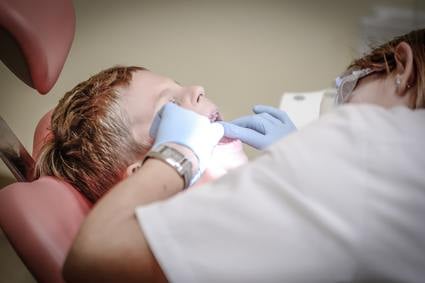
Most dental treatments, especially the ones that are performed by experienced and qualified dentists, have high success rates. In rare cases, however, some procedures fail. The causes can be due to medical negligence, improper care, and poor oral hygiene. The problems can range from faulty dental appliances to abscesses and infections around the operated teeth.
Even though a tiny percentage of dental procedures are likely to fail, it’s better to be prepared for any eventuality than to be caught totally off guard. This blog post explains what you need to do when things go wrong with dental treatments. Read till the end to know what you can do if you feel something’s wrong with your teeth.
-
Don’t panic
Whenever something goes wrong, panic is the most natural reaction. But it’s extremely detrimental to the situation at hand as it reduces the ability to think rationally and make the right decisions. That’s why no matter what the situation might be, keep calm and don’t panic. If you feel that something is wrong with the tooth that underwent a root canal procedure, don’t fiddle with it and call your dentist right away. If the crown falls off, pick it up and visit your dentist immediately.
The same thing applies to dental professionals as well. If they see that something is wrong with their patient’s teeth, they mustn’t panic and tell the truth. That will stop the problem from getting bigger and save the patients a lot of expenses and distress. If a dental treatment goes wrong, dentists must explain to their patients what happened and how that can be fixed with the most feasible option.
-
Don’t touch or fiddle with the injured area
Ever wondered why we feel the urge to touch an injured area? There is a science behind it. One leading research conducted by scientists at the University College London found that touching own injury reduces pain as it enables the brain to map or take a picture of the body.
But when it comes to a tooth injury or a malfunctioning dental appliance, a touch or tinkering with it can do more harm than good. If you feel any pain or sensitivity in or around the tooth that underwent any kind of procedure, then call or see your dentist without wasting any time.
For dentists, time is of the essence. When they get a call from their patients about any dental problem, they must schedule an immediate appointment or refer them to an emergency dentist if they aren’t available.
-
Be open about the problems and tell the truth
Several studies show that many patients don’t tell the complete truth or hold back some crucial information from their dentists and doctors. For instance, a recent study published in the British Columbia Medical Journal found that about a quarter of patients who took part in the research admitted that they lied to their doctors as they apprehended that their physicians won’t take them seriously if they told the truth. Another study found that many patients lied to their doctors due to fear of judgment, embarrassment, and avoiding lengthy advice. When it comes to any problem with your dental treatment and oral health, always tell the truth and don’t hide anything.
The same thing is relevant for dentists as well. A study found that doctors also hide the truth as a response to extreme competitive pressures or unfavorable outcomes. Dentists, after all, are humans and they, sometimes, may make mistakes. But telling the truth and acting with the utmost integrity as per the GDC standard 3.1 can mean the difference between a great dentist and an average one. Whatever the case may be, always tell the truth to the patient and take all necessary steps to correct the problems.
-
Make sure the problem is resolved and take proper care
After going to the dentist, make sure that the affected tooth or the affected area gets all the necessary treatments. If there is a problem with the root canal, listen to the dentist and bear with the necessary procedures. If it’s a crown that has fallen off, undergo the procedure to get it back in place. After the issue is resolved, take proper care to make sure that the treatment remains successful and the problem never happens again. A majority of dental treatments fail due to patients’ negligence if they smoke or drink after their procedures or don’t take proper care and maintain oral hygiene.
Before conducting any procedure, a dentist must be aware of their competence. If they are confident that they can perform it successfully, only then they must proceed. If not, they must refer the patient to a more experienced and skillful professional. After performing the treatment, dentists need to make sure that their patients receive suitable aftercare.
Finally, it may be concluded
Even though a majority of dental treatments have high success rates, some procedures fail if they have been performed by less qualified and experienced dentists. Some also fail if the patients don’t take proper care and maintain oral hygiene. Harmful habits such as smoking and drinking also increase the risks of dental treatment failures. This blog post discusses in detail what you should do if your dental treatment fails. This also highlights the importance of choosing a qualified, competent, and experienced dental professional to perform a dental procedure.
